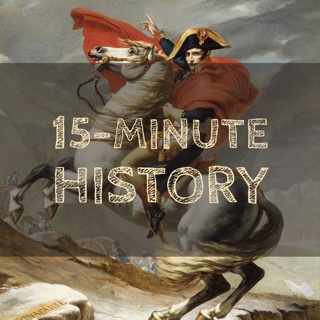
Special Christmas Episode | The History of the Nativity
The imagery of Jesus' birth has evolved over the century, but its meaning to all humanity remains as simple as ever in this holiday season. Special thanks to my Uncle Matt for giving me the idea for this episode! - Jon
23 Dec 20247min

Pop Quiz | An Inconsequential War?
It's time for a pop quiz! Join us as Joe and I talk through the idea of a war without consequences and discuss Australia's fight with emus and the "Whiskey War" of 1973-2022.
19 Dec 20248min

S.O.B.s | A Discussion on American Foreign Policy in the Cold War
Join us for our discussion on the morality and long-term consequences of America's Cold War-era foreign policy and the lessons we can learn from it today.
16 Dec 202434min

Pop Quiz | Populism and American Politics
It's time for a Pop Quiz! Join us as Joe and I discuss the evolution of populism in the United States and how it both reflected and has reshaped our political system.
12 Dec 202411min

S.O.B.s | American Foreign Policy in the Cold War
The benefits of hindsight let us examine faults in national policy through the lens of what followed. But in the midst of a global threat of nuclear war, the United States chose to support vicious dictators in the name of anti-communism. Were they right or wrong? Did it save humanity from death in atomic fire? Was this a good idea or a bad idea?
9 Dec 202416min

Pop Quiz | Censorship, then and now
It's time for a Pop Quiz! Join us as Jon covers the roots of censorship in the McCarthy era and after the 9/11 attacks and compares them to current-day calls for limiting free speech in America.
5 Dec 20243min

Espionage | A Discussion on Kim Philby and The Cambridge Five
Join us as we discuss one of the most notorious spy rings in modern history, The Cambridge Five, and the most prominent member, Kim Philby.
2 Dec 202433min

Thanksgiving & the Art of Being Thankful | Repost
Join us as we share stories of Thanksgiving throughout history and discuss how to practice the art of being thankful. This episode originally aired in November 2019.
27 Nov 202413min




















